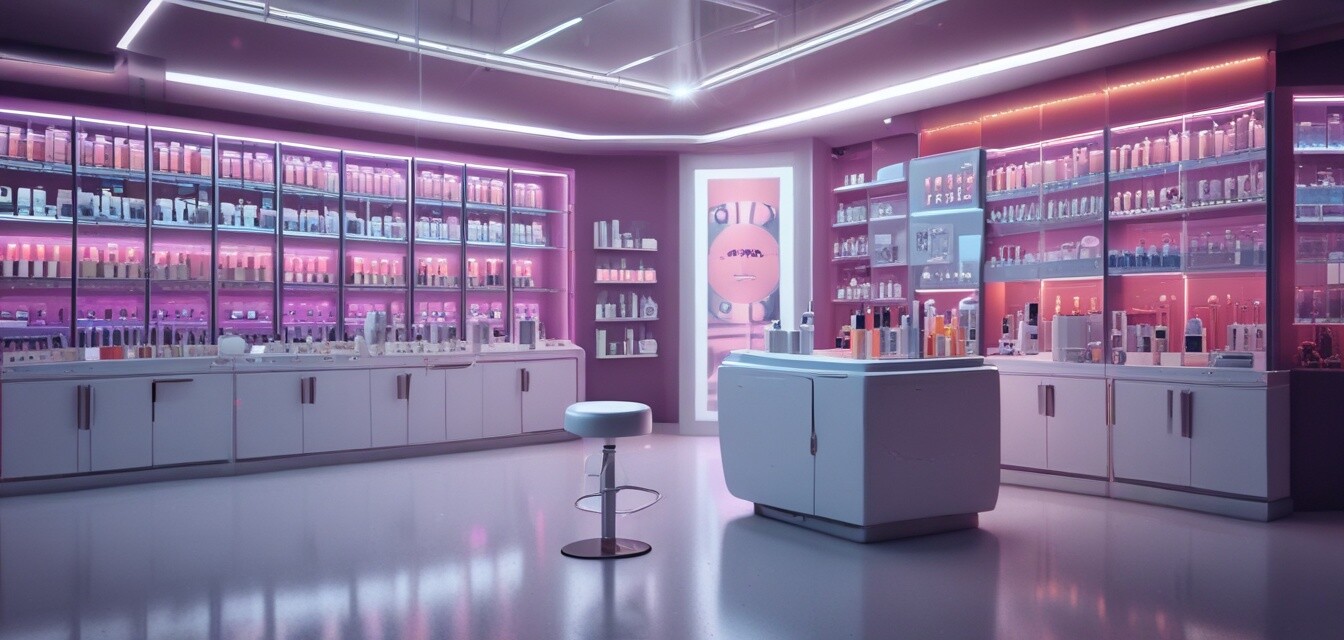
The future of anti-aging: Predictions for 2026
Key Takeaways
- Exploring emerging technologies that will revolutionize anti-aging skincare.
- Natural and herbal ingredients are becoming the go-to choice for consumers.
- Personalized skincare routines are on the rise, with products tailored to individual needs.
- The trend towards cruelty-free and sustainable beauty products continues to grow.
- Innovative delivery systems enhance the effectiveness of anti-aging treatments.
As we look forward to 2026, the landscape of anti-aging skincare is poised for significant advancements. With technology evolving rapidly, consumers can expect emerging products and trends that not only promise visible results but also enhance the overall skincare experience. In this article, we will dive into the upcoming innovations that are predicted to reshape the way we approach anti-aging.
1. Technological advancements transforming anti-aging skincare
The future of anti-aging skincare is largely driven by technology. From at-home devices to cutting-edge formulations, here's a glimpse at what's ahead:
| Technology | Description | Impact on Skincare |
|---|---|---|
| Microcurrent Devices | Tools that use electrical currents to stimulate facial muscles. | Provides a natural lift and reduces the appearance of wrinkles. |
| LED Light Therapy | Utilizes specific wavelengths of light to treat skin issues. | Promotes collagen production and addresses skin tone evenness. |
| Nanotechnology | Incorporates nanoparticles for better absorption of active ingredients. | Enhances product potency for noticeable results. |
| AI Skincare Analysis | Uses algorithms to recommend personalized skincare products. | Customization leads to more effective skincare routines. |
2. The shift towards natural and herbal ingredients
Consumers are increasingly seeking out products that utilize natural and herbal ingredients. As a result, the following trends are emerging:
- Adaptogens: Ingredients like ashwagandha and reishi mushrooms are gaining popularity for their ability to combat stress-related skin issues.
- Botanical oils: Oils derived from plants—such as rosehip and jojoba—are known for their nourishing properties.
- Antioxidant-rich formulations: Products enriched with antioxidants like vitamin C are expected to dominate as consumers prioritize anti-aging benefits.
Learn more about incorporating natural ingredients into your beauty routine in our Tips and Tricks section.
3. Rise of personalized skincare
One of the major trends predicted for the future is the move towards personalized skincare routines. With new technology, consumers will have a tailored approach based on their unique skin types and concerns. Consider these insights:
- Skincare companies are developing algorithms that create personalized product recommendations.
- Skin tests—often done via mobile apps—can help determine specific needs for each individual.
- Subscription services for skincare kits tailored to individual profiles are on the rise.
This shift towards customization ensures that consumers can achieve optimal results with their skincare regimen.
4. Emphasis on sustainable and cruelty-free options
As environmental responsibility becomes a higher priority for many consumers, the beauty industry is responding with:
- Packaging made from recycled materials.
- Products that are free from harmful chemicals and ingredients.
- Transparency regarding sourcing and manufacturing processes.
To explore more about eco-friendly skincare, check out our section on Herbal Moisturizers.
5. Innovative delivery systems for enhanced effectiveness
The delivery systems of skincare products are evolving. Here are a few innovations worth noting:
| Delivery System | Description | Benefits |
|---|---|---|
| Microencapsulation | Protects ingredients until they are applied to the skin. | Improves potency and longevity of active ingredients. |
| Serum-infused sheets | Mask sheets soaked in powerful serums for targeted treatment. | Quick delivery of high concentrations of active ingredients. |
| Smart dispensers | Devices that dispense the exact amount of product needed. | Minimizes waste and maximizes efficacy. |
Conclusion
The future of anti-aging skincare is set to be bright, with innovations paving the way for more effective, personalized, and sustainable solutions. As we move towards 2026, staying informed about these trends will empower consumers to make educated choices and adopt practices that align with their skincare goals. Embracing these changes will not only enhance beauty routines but also contribute to a more sustainable and ethical beauty industry.
Pros
- Innovative technology improves efficacy of anti-aging products.
- Greater access to personalized skincare solutions.
- Natural ingredients resonate well with health-conscious consumers.
- Sustainability efforts are better for the planet.
Cons
- Potential for increased costs associated with advanced technologies.
- Over-saturation of products can confuse consumers.
- Personalized products may require more trial and error.
